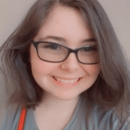When I was nine years old I was diagnosed with Asperger’s Syndrome, which is now just called High Functioning Autism or ASD in the United States. Although the label of my current diagnosis is “Autism Spectrum Disorder (High Functioning)”, there is nothing highly functional about it. When it comes to academics, there is immense imposter syndrome and identity crises. From Kindergarten to my senior year in high school, I was both “the gifted kid” and “the special needs kid”. Overall, you are seen as both “smart” and “stupid” by surrounding individuals, which unfortunately includes those in authority. Although this is from my own unique personal experience, there are a lot of brutal realities people on the autism spectrum may face in social environments, especially women. College is nothing different and can already be overwhelming for neurotypicals, so imagine being neurodivergent on top of it all.
Many of us on the Autism Spectrum had to learn that intelligence isn’t black and white the hard way. It took me a while to learn that you can be unskilled in one sector, but brilliant in another. That it is perfectly normal to struggle with one thing but thrive with another. Most importantly we have to learn for ourselves that there is nothing inherently wrong with us, it is the world we live in.
Now that I’m a college student living on campus, I find classes to be easier than K-12 schooling. The assignments aren’t daily and you are taking classes related to the degree of your choosing. Don’t get me wrong, going to college is a challenge. However, we are all choosing to be here rather than forced. Another aspect is likely studying something related to my “special interests”, which is the phenomenon among autistic people where we like certain things a bit more with intensive focus. Studies related to autism are starting to show that special interests can advance learning, improve our well-being, and even help with social skills. If this is the case, it would make sense that someone on the spectrum will likely thrive in academics post-high school.
However, there are times when classes can be a struggle for those who are autistic. For example, there might be sensory issues related to people in class whispering during a lecture or someone constantly tapping their foot. They might struggle to get proper accommodations from the school for assignments or testing, and sometimes professors might be hard to understand due to auditory processing problems. The classroom environment can be very overwhelming, especially if group projects are involved. We might mask to try to blend into groups so we don’t come off as “weird” or “socially awkward” while working on a group assignment and sometimes worry about being taken advantage of.
Another struggle that happens can be making friends in a new, constantly changing environment. It isn’t out of the ordinary for autistic people to struggle with social skills, nonverbal social cues, and reading facial expressions. Being on the spectrum can be isolating, especially on campus, as interacting with others can be stressful on top of a busy schedule. From personal experience, making friends has been a challenge. The best advice I could give to current autistic college students or rising freshmen is that things will eventually work out. You will eventually find someone or a small group of people who like the same things you do and get along with. As generic and silly as it sounds, being your true self goes a long way.
Overall, being autistic on campus can be brutal. However, you can also thrive in certain aspects of it. Autism is a spectrum for a reason, as no one on the spectrum is the same. Some of us thrive in college, and some of us struggle with it. In the end, although it is complicated, I value the experiences I am learning from being at NC State. It is interesting to observe everything both inside and outside the classroom. Our college experience might be different than the average individual, but I’m grateful for it as it’ll serve me well later in life.


